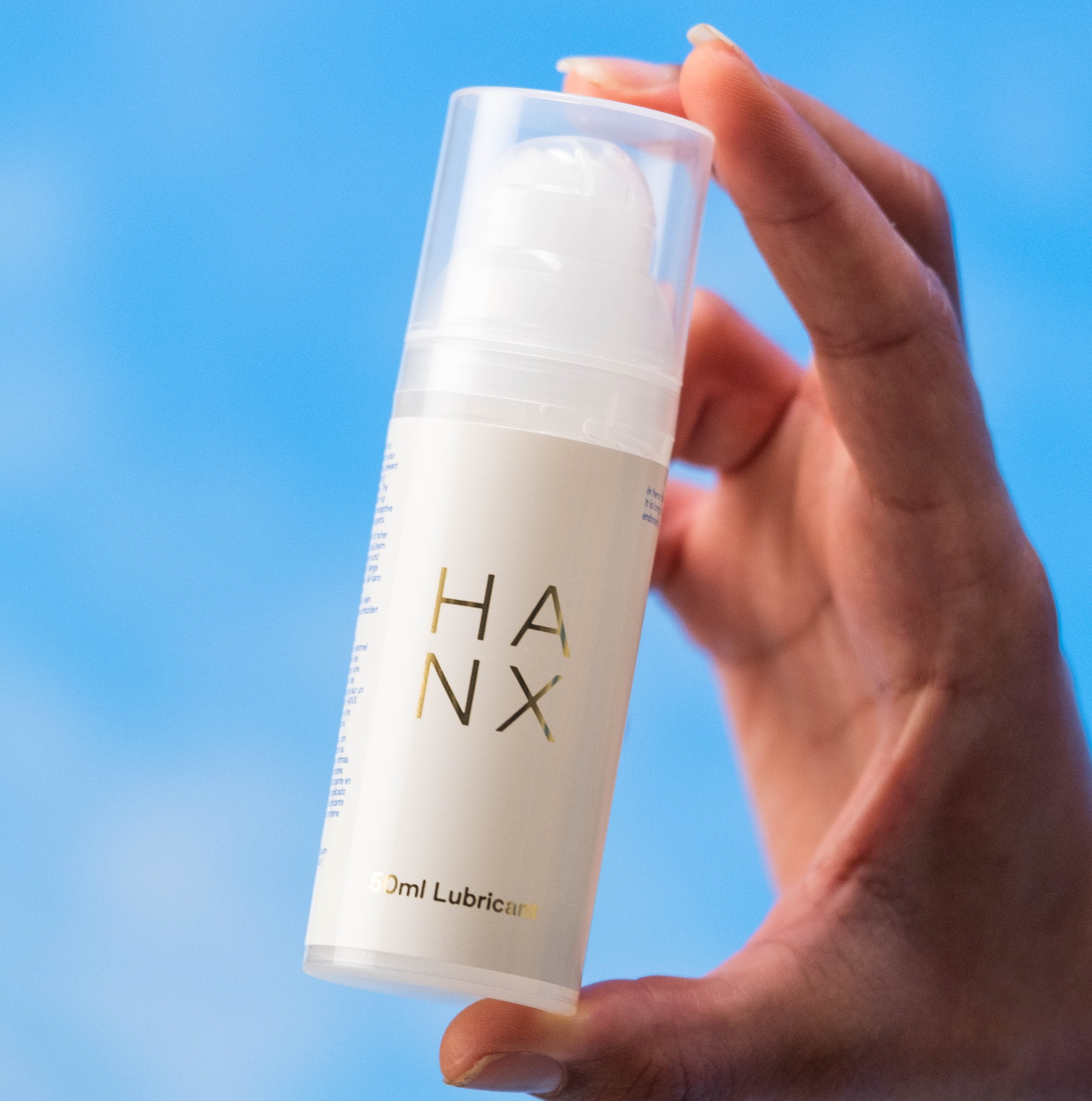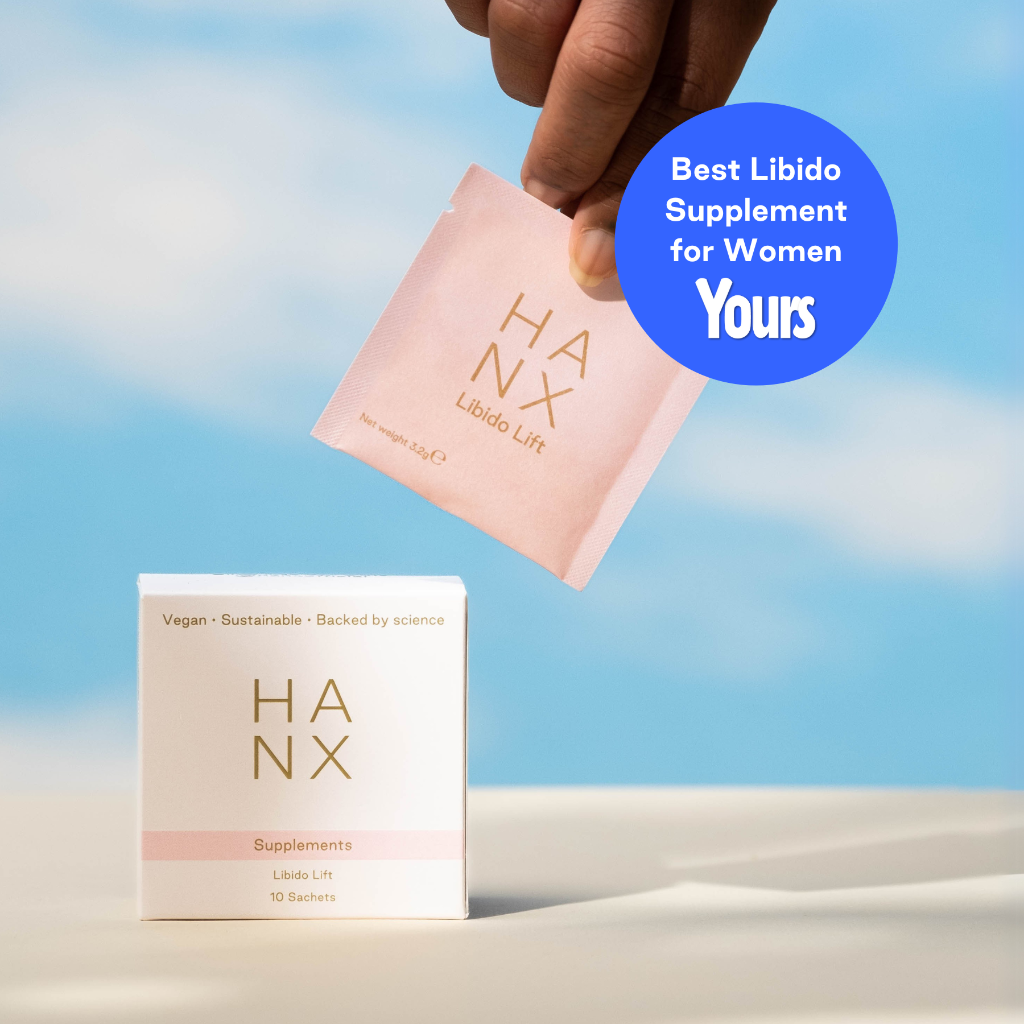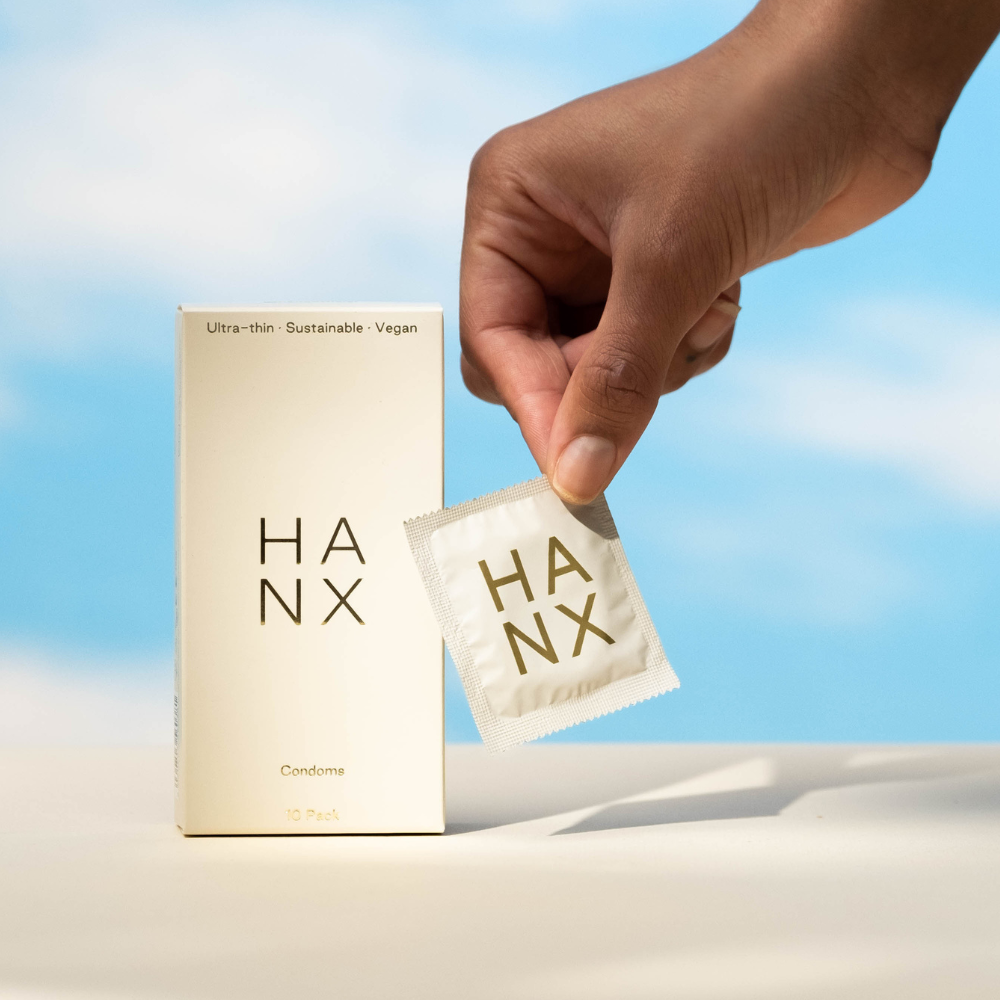Everything You Need To Know About Vaginal Thrush
Let's get it out of the way: most people feel awkward when they're experiencing vaginal health issues. Whether it's having to take time off work to secure a doctor's appointment to revealing to the whole chemist queue that you have weird, itchy discharge, it can be a worrying and even embarrassing situation. Inspired on insights from our Co-Founder and women's health expert Dr Sarah Welsh's experiences working in NHS gynaecology clinics, we've teamed up with our trusted registered third party pharmacy partner to bring you safe, effective treatments for common vaginal health conditions including thrush, plus hormonal contraception and a groundbreaking weight management programme, too.
Think ultra-convenient, medically approved solutions that you don’t need to queue for, or rearrange your whole diary. All it takes is a few clicks and a straightforward digital health consultation, which is reviewed by a prescribing pharmacist. If they deem the intimate care treatments for thrush, cystitis or BV safe and suitable for you, we'll speedily dispatch a non-branded, discreet parcel straight to your door.
Vaginal or genital thrush is a topic that often crops up in our DMs. Our Co-Founder Dr Sarah Welsh is here to answer your questions around vaginal thrush, and how to handle it when the going gets itchy...
What is vaginal thrush and what causes vaginal thrush?
Vaginal thrush, also known as vulvovaginal candidiasis or genital thrush, is an inflammation of the vagina and/ or vulva (the outside of the vagina) caused by a fungal infection. This causes symptoms such as itching, redness and discharge.
The vast majority (up to 92%) of cases of vaginal thrush are caused by a Candida yeast, but other yeasts are sometimes involved (some of the names of these include C. glabrata, C. tropicalis, C. parapsilosis, C. krusei, C. kefyr, C. guilliermondii, and Saccharomyces cerevisiaea). Some people are more predisposed to getting thrush, or have risk factors that make them susceptible, which is something we will get to in just a bit! But firstly, let’s look at the symptoms in more detail…
What are the symptoms of vaginal thrush?
Common symptoms of vaginal thrush include:
- Itching of your vulva
- Soreness of your vulva
- Vaginal discharge that is thick and white (commonly described as looking like cottage cheese)
- Pain when you pee
- Pain during sex
Roughly one-fifth of women of reproductive age may have thrush but no clinical symptoms, and therefore do not require treatment. However, in these women, when there is a change in vaginal pH or sex hormones in the body, the Candida yeast can multiply and lead to symptoms.
Is my thrush complicated or uncomplicated?
Vaginal thrush can be classified as uncomplicated or complicated. Uncomplicated thrush is infrequent, mild or moderate in severity, and not associated with risk factors (we will come onto these in more detail, but an example of a risk factor is having as low immunity). Complicated thrush is characterised by recurrent infections (4+ episodes each year), severe infection, often with yeasts other than the most common Candida Albicans, and generally occurring alongside risk factors.
How common is vaginal thrush and how many people get it?
Women of reproductive age are very likely to get vaginal thrush, especially if there are risk factors present.
It is estimated that 3 out of 4 women will have at least one episode of thrush and nearly half will have two or more in their lifetime. Only 10-20% of women will experience complicated vaginal thrush.
A survey by Foxman et al in 2013, surveyed over 6,000 women aged 16 years and over from 5 European countries and the USA. They found 29-49% of women had had a vaginal thrush infection at least once in their lives, and over 20% had more than one episode of thrush in a year.
What factors increase my risk of getting vaginal thrush?
Risk factors for vaginal thrush include:
- Pregnancy
- Menopause
- Poorly controlled diabetes
- People with conditions that compromise their immune system (such as HIV)
- People taking drugs that suppress the immune system (such as steroids)
Does taking antibiotics increase my risk of getting thrush?
Antibiotics are a risk factor for getting thrush, meaning they don’t cause thrush, but can make getting thrush more likely. The antibiotics treat a bacterial infection (note- thrush is an infection caused by a fungus), so the antibiotics work by killing bacteria, and alongside killing the nasty bacteria in our bodies (including in the vagina) they can kill the good bacteria that protect our vaginas from other infections such as thrush.
Does too much sugar lead to thrush?
Too much sugar in the bloodstream can make you predisposed to getting a thrush infection, so steer clear of too many foods high in sugar. This also applies if you have diabetes and are not controlling your blood sugars well enough.
Does sex cause of vaginal thrush?
Thrush is not a sexually transmitted infection (STI), but it can occasionally be triggered by having sex. The fungus that commonly causes thrush is normally harmless, but in thrush, it is overgrown and causes symptoms such as itching and discharge. This candida grows in warm and moist environments, and if the balance of bacteria is altered somewhat. Therefore, if your genital area is moist and warm during and after sex, and you don’t pee after sex to clear out the vagina (from secretions and semen), you can be susceptible to thrush. Intercourse can introduce bacteria from a partner’s fingers, mouth or penis (as well as sex toys) into your vagina, disrupting the natural ecosystem of bacteria and Candida in the vagina. For some people, this disruption can cause a yeast infection.
Is my period causing my thrush?
A change in hormones in some women is enough to trigger a yeast infection. This can be just before your period, when you’re pregnant, or going through the menopause.
Your vaginal pH levels change just before and during your menstrual cycle, which can lead to thrush during your period, before or even after.
Equally, when you’re on your period, the conditions may be suitable for Candida overgrowth (moist and warm) if you don’t change your pads and tampons regularly enough (roughly every 4 hours depending on your menstrual flow.
I have undergone gender reassignment surgery from having a penis to now having a vagina. Am I susceptible to getting vaginal thrush?
Is my horse-riding causing thrush?
Yeast infections can be triggered by activities such as bike riding or horse-riding, due to the consistent pressure, friction and sweat. Be sure to wear breathable underwear when taking part in any activity like this, and try to avoid too much rough friction in the genital area.
What complications could there be as a result of thrush?
Complications of vaginal thrush include failure of the treatment to work, which is whereby the treatment does not clear up symptoms in 7 to 14 days of starting. Other complications include psychological problems such as psychosexual complaints, including vaginismus (which has very real physical manifestations), or depression. This is more common in people who have recurrent vaginal thrush.
Can I pass thrush on through sex?
It is uncommon to pass on vaginal thrush through sexual intercourse, however it is possible. If you’re having sex with someone who has a penis, then a small percentage of these partners will develop balanitis (swelling, redness and irritation of the end of the penis).
If you have uncomplicated vaginal thrush, we would not routinely test your sexual partner unless they had any symptoms.
To avoid passing on thrush during sex, it’s advisable to use a condom or avoid sex completely.
Is thrush is highly contagious?
We quizzed over 500 of the HANX community about intimate health myths. We found that a whopping 21% of our survey respondents believed this statement to be true - but it's absolutely not!
Thrush is not highly contagious, and you won’t give someone your yeast infection from holding hands with them for example. However, they have the potential to be passed on in intimate situations to certain people. Thrush is not a sexually transmitted infection, but very occasionally can be passed on through sex. This is not common, so if you think you have symptoms of thrush after sex, then see a sexual health clinic as it may be something more common that you have.
How do you diagnose thrush?
If you haven’t had thrush before or your doctor is unsure of the diagnosis, they may want to take a swab from your vagina to confirm the infection is indeed caused by thrush and nothing else. The swab will be sent to the laboratory for testing and culture, which will show a yeast.
Will my thrush get better?
In uncomplicated genital thrush, antifungal treatment clears 80-90% of people treated. Recurrent vaginal thrush, which is 4 or more episodes a year, occurs in 5% of people who experience this, and requires specialist review.
Will vaginal thrush go away on its own?
It is possible a very mild vaginal yeast infection may go away without treatment, but the majority of cases clear up with antifungal treatment. If you're pregnant, however, it is important to be seen by a professional.
How do you treat vaginal thrush?
For most women, you can treat vaginal thrush with an antifungal treatment. The choice and formulation depends on individual factors and the patient’s preference. This can include a pessary which is a tablet inserted into the vagina, a capsule that is swallowed, and an antifungal cream. Mostly, an initial treatment with an antifungal pessary or antifungal orally will clear the infection.
It’s important to note that intravaginal antifungal treatments can cause damage to latex contraceptives and can inactivate spermicidal contraceptives. It is advisable to abstain from sex or the use of non-latex barrier methods during treatment with (and for at least 5 days after stopping) these intravaginal antifungals.
If you’re under 16 years old, your doctor may consider using a topical antifungal cream only, and for women over 60 their professional may indicate using oral tablets (rather than pessary due to ease of use).
Antifungal (clotrimazole) pessaries offer a one-off dose of treatment and are ideally used at night, so you’re lying down and the medication can work at the source of infection without dropping out. You can also order a single dose of oral antifungal (fluconazole) which works by fighting infection. Finally, soothing thrush cream can be used 2-3 x day until the infection settles.
What if I have vaginal thrush in pregnancy?
If you’re pregnant, it’s advisable to see your doctor or midwife before using treatments for thrush. Thrush during pregnancy can be treated with an antifungal cream and/or pessary.
Will thrush affect my chances of getting pregnant?
No, having thrush does not affect your chances of getting pregnant.
Should I get a test to check my thrush has gone?
No, this is not necessary. However, if your symptoms did not go away with treatment, or they have come back, you may need to be seen by your health professional again.
How do I prevent getting thrush going forwards?
To help prevent recurring vaginal thrush infections, we would advise you to avoid the following potential predisposing factors:
- Washing the vulva with soap or shower gels (including those containing perfume and even antiseptics such as tea tree oil), wipes, and 'feminine hygiene' products.
- Cleaning the vulva and vagina more than once each day.
- Washing underwear in biological washing powder and using fabric conditioners.
- Vaginal douching.
- Wearing tight-fitting, synthetic underwear.
- Use a simple emollient to moisturise the genital area.
- Consider using probiotics (such as live yoghurts) orally or topically to relieve symptoms.
Am I less likely to get vaginal health conditions, including bacterial vaginosis, cystitis and thrush, if I clean my vagina with soap?
Our recent vaginal health survey found that over 22% of those who took part, believed this statement to be true. It is, in fact, a huge myth!
Washing your vagina with soap is a big no-no! Vaginas are self-cleaning, so just wash your vulva with unscented soap as you would the rest of your body.
This belief is perpetuated by companies and products taking advantage of this potential insecurity of having a clean vagina. Even “feminine hygiene” products suggest we need to be clean down there, and products such as cleaning wipes and cleaning washes exacerbate people’s belief that we need to clean our vagina.
However, people who clean their vagina are more susceptible to infections such as bacterial vaginosis and thrush, as well as cystitis. Such products often also contain artificial scents and synthetic ingredients that irritate the vagina and disrupt its natural balance. Vaginal discharge is a normal way for the vagina to naturally protect itself from nasty bacteria. If we mess with this then there could be an overgrowth of bacteria that could cause infections.
Do I need to have any follow-up or tests after being treated for vaginal thrush?
It is not necessary to have any follow-up after being treated for thrush unless your symptoms are persistent or recurrent.
If your symptoms have not resolved within 7-14 days of taking antifungal treatment, then please see a professional for review.
Are there any long term effects of untreated thrush?
Recurrent or untreated thrush is unpleasant and can cause anxiety around sex, and ultimately sexual relationships. You can speak to a sexual health clinic or your GP about long term treatments if you’re unable to resolve your thrush.
Want more?
- Discover all our intimate care treatments for thrush, cystitis and BV.
- Find out how to avoid thrush in summer here.






















